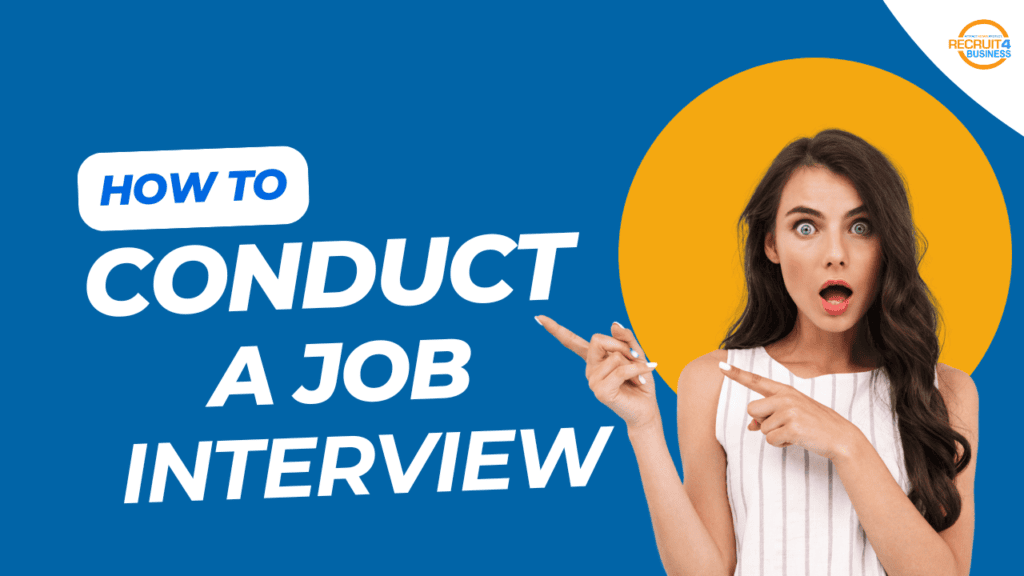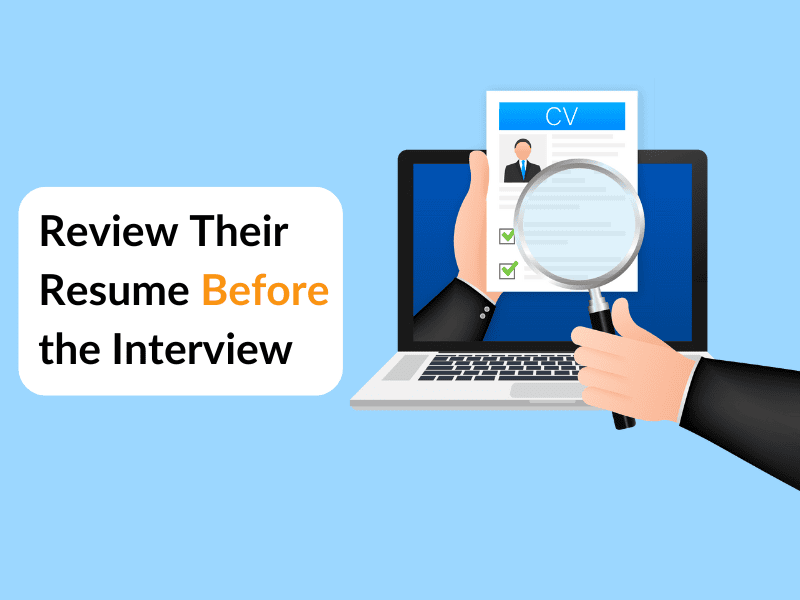How to Conduct a Job Interview

Tips for HVAC/R Contractors and Skilled Trade Businesses
Many companies make the mistake of thinking an interview is “just a conversation” and don’t prepare strategically. Bad hires in the trades can cost you up to 75% of a new employee’s salary—wasting time, money, and energy you can’t afford to lose. The key to hiring the right person starts with the interview process.
Conducting an Employee Assessment before interviewing saves time by filtering out poor fits early and giving you the opportunity to tailor your interview to the candidate’s strengths and weaknesses. Without the right interview approach, you risk making the wrong hire. As recruiting specialists, we use a behavioral method to identify who’s truly a good fit. In this blog, we’ll cover the best interview questions to ask and how to structure your interview process for success.
How To Plan a Job Interview
Planning ahead will set you up for a smooth interview process. Let your staff know interviews are taking place, keep the office and workstations tidy, and be just as prepared as you expect your candidates to be. Send clear meeting confirmations with all the details for the interview. If you’re hiring for a role you already have on staff (technicians or installers), check in with your team to understand their challenges and tailor your interview questions to address them with the candidate. These are a few steps to take that will set you up for success.

Structuring the Interview
Interviews require preparation on your part if you want to make sure you hire the right person. Here are a few tips to guide your interview.
Let The Candidate Talk: You should be listening more than speaking. If you want more details, be comfortable with silence—it encourages candidates to elaborate and expand on your questions.
Use Open-Ended Questions: Open-ended questions encourage conversation and deep thinking for the candidate. Yes and no questions don’t offer expansion and considering the candidate wants to make a good impression in the interview, it can lead to them answering the way they think you want them to answer – even if it’s not completely true.
Don’t Interrogate the Candidate: This may seem obvious, but it’s more common than you might think. Be mindful of HOW you pose your interview questions. Consider your wording to ensure it isn’t overly harsh. . For example, “What was your biggest failure in the workplace?” and “Tell me about a mistake you made at work and how you fixed it” both ask the candidate for similar information but are presented very differently. A negative, aggressive approach damages rapport and makes your company seem like they don’t trust their employees.
What Are the Best Interview Questions to Ask Candidates?
Now that you have the right interview approach in place, you need to have questions ready to ask the candidate. We recommend asking a mix of behavioral and position-specific questions to get a holistic view of the candidate. Here are the best interview questions to ask candidates in your interview.
Covering the Basics
Before the interview, make sure you review the candidate’s resume. Do you have any questions about gaps in employment or education? Is there anything unusual in their resume worth noting in the interview? Once you’re in the interview, are their answers consistent with the information on their resume? Get clarity on any points that aren’t matching up.

Investigate the compatibility between your work environment and the candidate. Are the work hours and location a match for this candidate? If a candidate says they hated commuting at their last job and your location has a similar commute, your candidate isn’t likely to stay with you long. As you get further into the interview process, check in on the on-call schedule as that can also be a deterrent for candidates.
Situational & Behavioral Questions
It’s important to take the time to ask situational and behavioral questions. Gauging the candidate’s attitude, thought process, and response to challenging scenarios is helpful in determining compatibility with your working environment. Ask questions like:
- Tell me about a time you had to solve a specific problem
- What do you do when you’re stuck on a job and don’t know what to do next?
- How do you handle difficult customers?
All of these questions give you insight into how the candidate will perform on the job.
Position-Specific Questions
Every role needs different skills, which is why our assessments use industry benchmarks to help us pinpoint the traits that make people successful in HVACR, plumbing, electrical, and other trades. When interviewing, be sure to ask candidates about their actual responsibilities—job titles can be misleading. For instance, a “sales manager” who’s never managed a team probably doesn’t have the leadership skills you’re looking for.

Installers
Installers work in teams, so it’s important to assess their introversion and people skills during the interview. You’ll want to know what personalities they work well with and what personality types they find challenging, so you can pair them with the right team. Installers also need strong problem-solving skills, as they often need to think on their feet when missing parts or tools. Make sure your candidate can handle these situations without letting such problems derail their day.
Service Technicians
Due to the nature of the job, Service Techs also need to be problem solvers. Asking questions like “What would you do if you’re stuck in the field and a certain issue arises?” can help determine if the candidate has the right skill set for the role.
Plumbers
Plumbers, especially in residential work, need strong customer service skills. Ask questions like, “How do you handle an unhappy customer?” or “How do you communicate with customers on the job?” to get an understanding of their customer service skills.
For entry-level positions, don’t skip basic questions like, “How do you handle extreme temperatures or tight spaces?” or “Are you comfortable with heights or working in crawl spaces?” These simple questions can help you determine if a candidate is fit for the role.
Making the Hiring Decision
This can’t be stressed enough. Do not make an offer during an interview, no matter how much you like the candidate. Hiring decisions should not be rushed. Sometimes a position needs to be filled quickly, but rushing to fill the position with the WRONG candidate will only cost you time and money, not to mention your sanity.
Evaluate and compare a candidate’s strengths and weaknesses and get input from your team—they might catch something you miss. Debrief with your leads and the hiring manager to ensure the new hire will mesh well with your existing team. If your manager thrives on organization and the candidate struggles with it, that’s a mismatch doomed from the start. Set your team up for success by pairing the right people together.
Tip: Don’t ignore the red flags from an interview and think you can “make it work.” We’ve seen We’ve seen this proven wrong time and time again. Red flags turn into conflicts of personality, culture, or working habits and then you’re back to square one within a couple months trying to rehire for the position. Take the time to make the right hire the first time.
Recapping Interview Tips for Employers
Having your interview process nailed down helps you avoid making bad hires, reduces potential turnover, and helps you build a strong and reliable team to drive your business forward. Taking the time to put a hiring strategy in place saves you from the stress and financial strain from hiring the wrong person.
Need help refining your hiring process? We specialize in recruiting and HR for HVACR and skilled trade businesses. Contact us for hiring support.